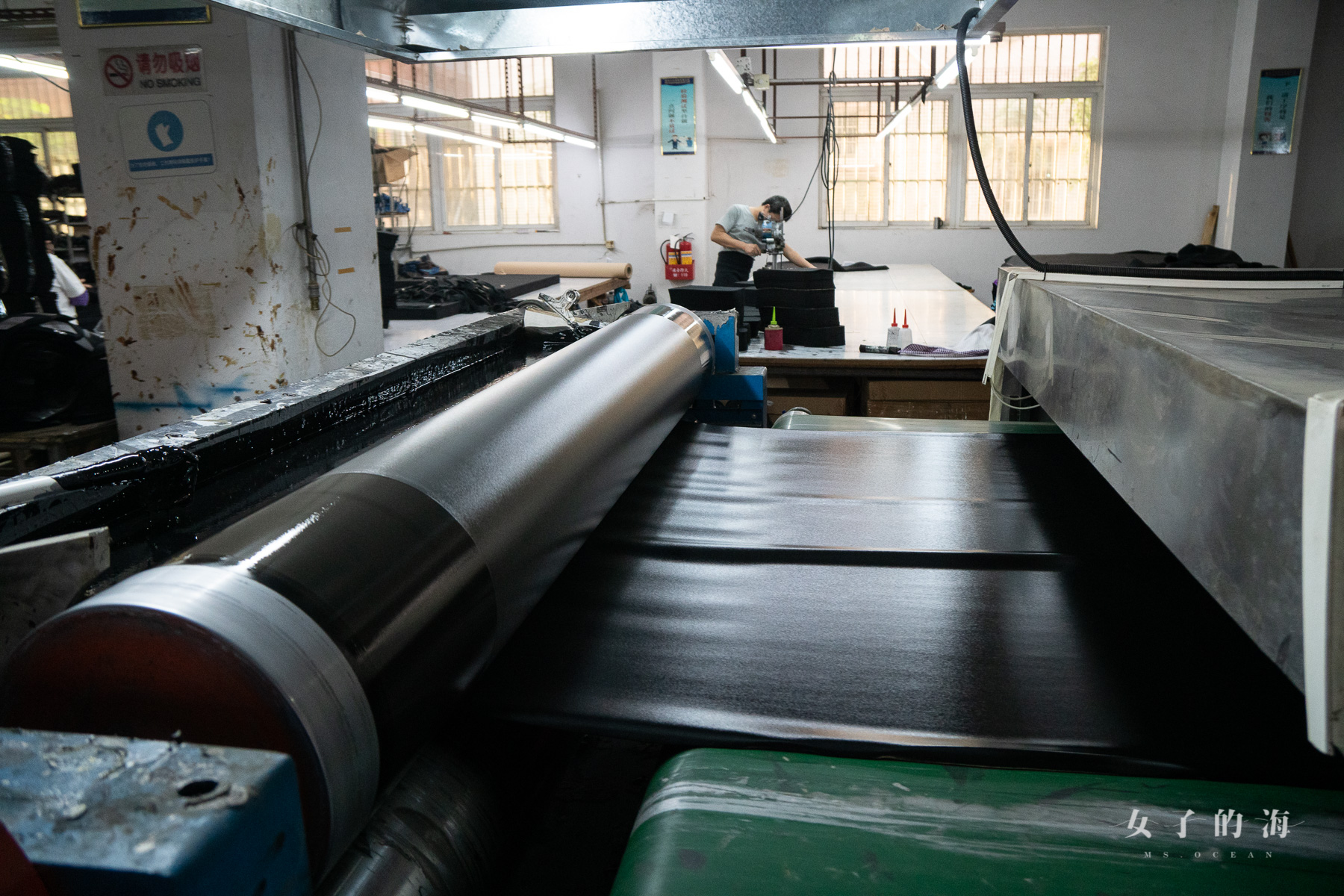
TRUDIVE Titanium Coating Technology – Titanium Alpha
- Release Date:
While the flesh (Open Cell) offers optimal elasticity and insulation, its drawback lies in its fragility, susceptibility to tearing, and difficulty in putting on and taking off. TRUDIVE has acquired the titanium coating patent from South Korea’s Jako, using it not only to create colorful smooth surfaces but also innovatively applying it to the inner layer of Open Cell. The titanium coating, without compromising elasticity, enhances the smoothness and strength of the Open Cell, while maintaining insulation. With TRUDIVE’s titanium-coated inner layer, there’s no need for water lubrication, making it significantly more convenient.
After bonding and applying the titanium layer, the chloroprene rubber slices are rolled up like fabric and can be stored or sold to other downstream manufacturers. Small wetsuits brands or studios often choose not to purchase foam sponge raw material to cut slices themselves. Instead, they buy fabric that has already been bonded and coated, such as Royal Diving, Italy’s Elios Sub, or Okinawa Blessing.
Similar to any garment, pattern making and cutting are crucial aspects of wetsuits production. While obtaining quality fabric is not difficult, as each manufacturer can purchase excellent chloroprene rubber fabric from suppliers like Yamamoto, Jako, or Nam-Liong the soft power of each brand lies in how well they create well-fitted, attractive, and comfortable wetsuits using the same fabric. This is also why Elios Sub, despite being a family business with production volumes incomparable to many large factories, can produce wetsuits that many freedivers aspire to own.
